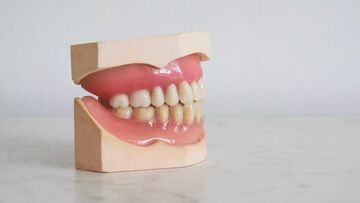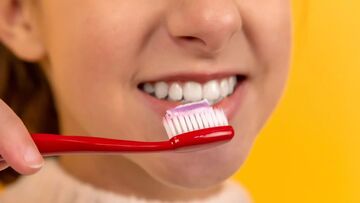Healthy Mouth, Healthy Body

Did you know how well you care for your teeth and gums can have a dramatic effect on your overall health? Currently in the UK gum disease is the leading cause of tooth loss in adults but research has found links between poor oral health and a number of different medical conditions as well.
These include:
Heart Disease and Stroke
If you suffer with gum disease the bacteria present in your mouth are able to get into the bloodstream. These bacteria then produce protein. This can cause the platelets in the blood to stick together, increasing the likelihood of clots forming.
Clots in your bloodstream prevent oxygen and other necessary nutrients getting to your heart and other organs such as the brain. If the blood flow is dramatically affected this can lead to a heart attack or stroke.
Diabetes
If you are diabetic you are more likely to suffer with gum disease, but it is especially important to ensure that you get any problems diagnosed and treated early. Gum disease can increase your levels of blood sugars and if left untreated this can put you at risk of further diabetic complications. Recent studies have also shown that having gum disease can increase your risk of developing diabetes.
Pregnancy
If you suffer with gum disease and are pregnant you may be over three times more likely to have a baby with a low birth weight or a baby that is premature. There is a one in four chance that a pregnant woman with gum disease will give birth before 35 weeks.
Chest Infections
If you suffer with gum disease you will have an increased number of bacteria present in your mouth. Chest infections are caused by breathing in fine droplets containing bacteria from the throat and mouth into the lungs, with an increased number of bacteria present there is an increased risk of developing infections.
Signs of Gum Disease
So what should you look out?
The main signs of gum disease are:
- Red, swollen gum
- Bleeding when you brush your teeth
- An unpleasant taste in your mouth
- Bad Breath
- Loose Teeth
- Regular Mouth Infections
If you notice any of these signs, be sure to book an appointment with your dentist.
Treatment of gum disease
Gum disease can never be cured but with good oral hygiene and regular visits to the dentist or hygienist for scaling it is possible to slow down and even halt the progression of the disease. Your dental team will remove all the plaque and calculus build up from your teeth. This is what provides the ideal environment for bacteria to grow and flourish. They will also instruct you on oral hygiene to ensure that you follow the best possible routine in between appointments. A good at home oral care routine is the most important part of treatment for gum disease
- Brush your teeth twice a day using a fluoride toothpaste
- Clean your teeth interdentally using floss, interdental brushes or floss picks at least once a day
- Visit your dentist for regular appointments as often as they recommend
Start of your journey to a healthy mouth and healthy body by calling Benfleet Dental Centre today on 01702 557766 or request an appointment online NOW.
Contact us to make an appointment

Related news from the practice

5 Foods That Stain Your Teeth
14/11/2023

Tips on How to Cure Bad Breath
06/11/2023

How long will a dental implant last?
07/04/2023

Top 5 Dental Myths Busted!!
01/10/2022

Visit the practice
Benfleet Dental Centre
8 Benfleet Road, Benfleet. SS7 1QB
Opening times
| Monday | 08:00 - 17:00 |
| Tuesday | 08:00 - 18:30 |
| Wednesday | 08:00 - 17:00 |
| Thursday | 08:00 - 17:00 |
| Friday | 08:00 - 17:00 |
| Saturday | 09:00 - 14:00* |
| *By appointment only |

